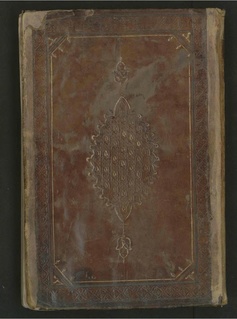This page is based on this
Wikipedia article Text is available under the
CC BY-SA 4.0 license; additional terms may apply.
Images, videos and audio are available under their respective licenses.

Ibn Abi Sadiq al-Naishaburi, Abu al-Qasim ‘Abd al-Rahman ibn ‘Ali was an 11th-century Persian physician from Nishapur in Khorasan.
He was a pupil of Avicenna. As he composed a popular commentary on the Aphorisms of Hippocrates, he was known in some circles as "the second Hippocrates". Ismail Gorgani, the author of Zakhireye Khwarazmshahi, completed his studies under his guidance.
Hakim Ali ibn Kamal al-Din Muhammad Gilani was a 16th-century Gilak royal physician from Gilan, Iran.
Muhammad ibn Mahmud al-Amuli was a medieval Persian physician from Amol, Iran.
Muhammad Aqa-Kermani, also written Aqkirmani, was an 18th-century Persian physician from Kerman, Iran.
Jamal al-Din Muhammad ibn Muhammad ibn Muhammad ibn Fakhr al-Din al-Razi, also written al-Aqsara'i, was a 14th-century Muslim Persian physician. He became known as Aqsara'i because he moved to Aqsara region of what is now Turkey.

Muhammad ibn Yusuf al-Harawi was a Persian late 15th century physician from Herat, Safavid Empire, now part of Afghanistan.
Muḥammad ibn Yusuf al-Ilāqī was an eleventh-century Persian physician from Khorasan.

Mahmūd ibn Muḥammad ibn Umar al-Jaghmini, or 'al-Chaghmīnī', or al-Jaghmini, was a 14th-century Persian physician, astronomer and author of the
of Qanunshah a short epitome of by Avicenna in Persian, and
Mulakhkhas (Summary), a work on astronomy completed in 808 AH - 1405/6 AD.
Muhammad Akbar ibn Mir Hajji Muhammad Muqim Arzani was a physician from Persia.
Burhan-ud-Din Kermani or Burhān al-Din Nafīs ibn ‘Iwad al-Kirmanī was a 15th-century Persian physician from Kerman.
Muhammad ibn Thalib ibn Abd Allah ibn Ni`mat Allah ibn Sadr ad-Din ibn Shaykh Baha' ad-Din ash-Shirazi was a 15th-century Persian physician from Shiraz, Iran.
Najm al-Din Mahmud ibn Ilyas al-Shirazi was a Persian physician from Shiraz in Persia.

Abu Yahya Zakariya' ibn Muhammad al-Qazwini or Zakarya Qazvini (1203–1283) was a Persian physician, astronomer, geographer and proto-science fiction writer of Arab descent. He belonged to a family of jurists who had long before settled in Qazvin. He drew his origin from an Arab family and was probably a descendant of the Medinian Sahabi Anas bin Malik.
Yuhanna ibn Bukhtishu was a 9th-century Persian or Syriac physician from Khuzestan, Persia.
Muḥammad Mu’min ibn Mīr Muḥammad Zamān Tunakābunī was a 17th-century Persian physician from Mazandaran.
Amin al-Din Rashid al-Din Vatvat was a 13th-century Persian physician.
Safīna-yi Tabrīz is an important encyclopedic manuscript from 14th century Ilkhanid Iran compiled by Abu'l Majd Muhammad b. Mas'ud Tabrizi between 1321 and 1323.
Husayn ibn Muhammad ibn Ali al-Astarabadi was a 15th-century Persian physician from Astarabad, Golestan, Persia.
Sadid al-Din Muhammad ibn Mas‘ud al-Kazaruni was a 14th-century Persian physician from Kazerun, Fars, Iran.
As-Suwaydi was a medieval Arab physician from the Aws tribe, and a pupil of Ibn al-Baytar. Active in Cairo and Damascus, he compiled three works: a treatise on plant names, a treatise on the medical use of stones, and a book of medical recipes and procedures (Tadhkirah).
As-Suwaydi's Tadhkirah was epitomized by Shaʿrānī in the 16th century.




